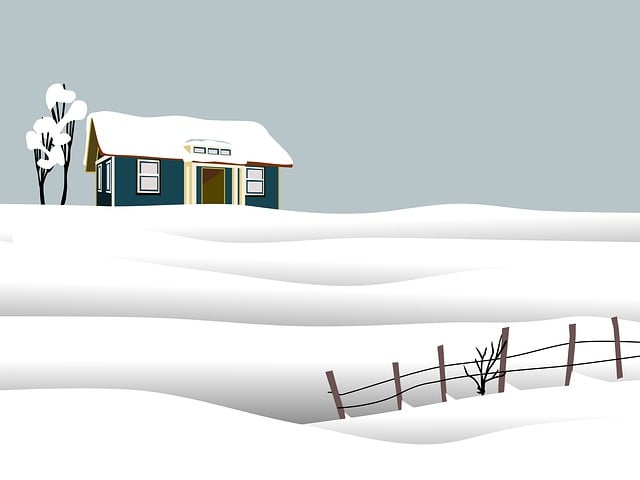DIY home improvements, while cost-effective, are prone to significant issues like budget overruns, legal complications, and quality problems. Common mistakes include skipping permits (leading to delays and fines), miscalculating measurements (wasting materials), hiring unlicensed contractors (compromising safety and insurance claims), and poor planning. To avoid these pitfalls, homeowners must prioritize realistic budgeting, obtain necessary permits, ensure skilled labor, and double-check measurements before starting any renovation project.
“Avoid costly DIY disasters and protect your home’s value with this comprehensive guide to common renovation mistakes. From budgeting blunders that can lead to financial strain to overlooking crucial structural issues, every misstep matters. Learn how to navigate permit processes, set realistic budgets, and hire licensed professionals to ensure your home improvement projects enhance, not harm, your property’s value. Master these strategies and steer clear of the pitfalls that plague many DIY enthusiasts.”
Budget Overrun Mistakes: How to Avoid Going Overhead
DIY projects can be a great way to enhance your home and save money, but they also come with potential pitfalls that could damage its value if not managed correctly. One of the most significant issues homeowners often face is budget overrun mistakes. This happens when the initial estimated costs for a project significantly exceed the planned budget, leading to financial strain and potential quality compromises.
To avoid going overhead, meticulous planning is crucial. Always factor in a contingency fund for unforeseen expenses. Researching local permit requirements and obtaining necessary permits before starting can prevent costly delays and fines. Additionally, ensure that all contractors and professionals are licensed and insured. Measurement mistakes during DIY renovations can also lead to material wastage and budget blowouts. Double-checking measurements and seeking expert advice when unsure is essential to keep projects on track and within the intended budget.
– Understanding the financial pitfalls of DIY projects
When taking on DIY home improvement projects, it’s crucial to recognize that while saving money is a common motivator, poorly planned or executed endeavors can lead to significant financial setbacks and even damage your home’s value. Many homeowners underestimate the complexities involved in remodeling, from unforeseen structural issues to costly material mistakes. Budget overruns are a frequent pitfall, especially when projects extend beyond initial scope or unexpected challenges arise. Skipping necessary permits can also result in hefty fines and delays, impacting your project timeline and bottom line.
Beyond financial losses, common renovation oversights like measurement mistakes in DIY projects can lead to poorly fitted fixtures or appliances, undermining the overall aesthetic appeal of your home. Hiring unlicensed contractors, another frequent error, can guarantee subpar workmanship and leave you vulnerable to further damage down the line. Each of these home improvement mistakes has the potential to create a chain reaction of issues, ultimately impacting your property’s value and resalability.
– Setting realistic budgets and sticking to them
When tackling home improvement projects, one of the most significant factors to prevent damaging your property’s value is setting realistic budgets and adhering to them. Many DIY enthusiasts often get carried away with their renovation dreams, overspending on materials or labor due to a lack of financial planning. Home improvement mistakes can be costly, leading to budget overruns that may deplete savings or require additional loans. Before starting any project, create a detailed plan outlining expenses for materials, tools, and professional services.
Another common oversight is skipping permits when beginning renovations. Depending on the scope of work, obtaining necessary permits is essential and often mandatory. Failure to do so can result in legal issues and fines that could have been avoided with some paperwork. Additionally, hiring unlicensed contractors or taking on complex tasks without proper skill sets can lead to poor workmanship, subpar results, and potential safety hazards. Measurement mistakes in DIY projects are also frequent oversights; accurate measurements are crucial for ensuring the right fit of fixtures, appliances, and finishes, avoiding costly returns and exchanges.
– Tips for accurate cost estimation
When embarking on a home improvement project, one of the most significant pitfalls homeowners can encounter is inaccurate cost estimation. Many DIY enthusiasts, enthusiastic about their renovation ideas, often underestimate the financial commitment required. This can lead to budget overruns and unforeseen expenses, damaging the overall value of your property. To avoid this trap, meticulous planning is crucial. Start by thoroughly researching each aspect of your project—from material costs to labor rates. Create a detailed list of all necessary materials, tools, and tasks, ensuring you account for every variable. Online resources and home improvement forums can be valuable tools for gathering accurate data.
Another common oversight is skipping the permit stage, which can result in legal issues and costly corrections later on. Depending on your location and project scope, obtaining the right permits is essential to ensure compliance with building codes and regulations. Moreover, hiring unlicensed contractors or taking on complex tasks without proper knowledge can compromise the quality of your work and potentially reduce your home’s resale value. Always prioritize safety and professionalism by engaging licensed and experienced tradespeople for specialized jobs. Finally, pay close attention to measurements; even minor errors can lead to significant issues during renovation, especially when ordering custom materials or planning floor layouts.
While DIY projects can be rewarding, they’re not without potential pitfalls that could harm your home’s value. Common mistakes like budgeting overruns, skipping necessary permits, or hiring unlicensed contractors can lead to costly repairs and a devalued property. To avoid these renovations oversights, prioritize thorough planning, accurate cost estimation, and adherence to local regulations. Remember, successful DIY projects require not just skill but also disciplined financial management and attention to detail.
